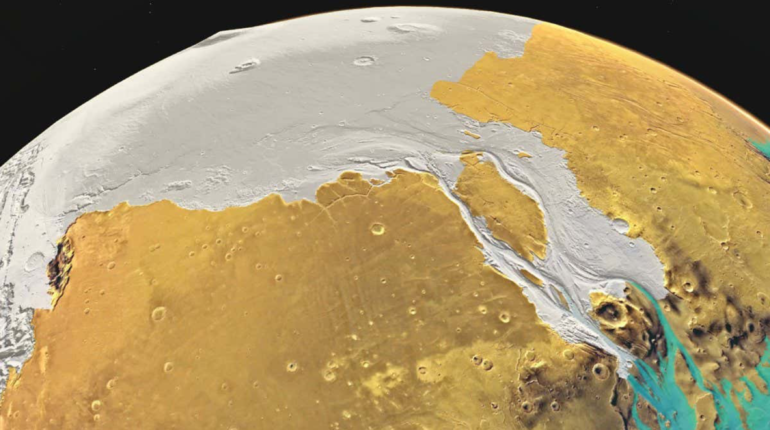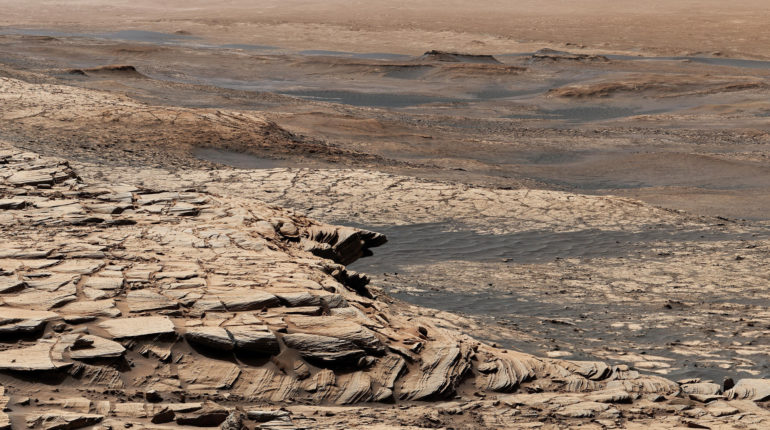How did NASA discover Mars’ dead ocean?
Scientists have engaged in a flip-flopping debate about whether there was ever water on Mars since the 90s.
Right before the turn of the millennia, new and improved cameras on the Global Surveyor Mission sent photos that NASA’s team said ‘did not show any coastal landforms in areas where previous researchers – working with lower resolution images from the Viking Rover – proposed there were shorelines.’
NASA swallowed the ‘mistake’ in its previous analysis and continued to send more exploration missions just in case, because why the hell not?
But space travel takes time and getting data back for analysis can take even longer. The latest bundle of evidence from Mars is a perfect example of this.

Mars’ relief map – which shows a stretch of eroded coastlines – was actually captured by NASA’s Reconnaissance Orbiter, a satellite that passed by the red planet back in 2007.
During a new analysis of hundreds of these images, a topographical depression on Mars named Aeolis Dorsa was assessed for its ridge thickness, angles, and location. The similarities to Earth’s waterways were eerily similar.
‘On Earth, we chart the history of waterways by looking at sediment that is deposited over time. We call that stratigraphy, the idea that water transports sediment and you can measure the changes on Earth by understanding the way that sediment piles up.’ said Pennsylvania State University geoscientist, Benjamin Cardenas.
‘That’s what we’ve done here – but it’s Mars,’ he continued.
For now, the Mars region of Aeolis Dorsa looks to be the area with the most pronounced fluvial ridges. The search will continue to discover more.

Asking the million-dollar question
Could life have existed on Mars?
‘What immediately comes to mind as one the most significant points here, is that the existence of an ocean of this size means a higher potential for life,’ geoscientist Ben Cardenas said.
‘If there were tides on ancient Mars, they would have been here [in the Aeolis Dorsa region], gently bringing in and out water,’ says Cardenas. ‘This is exactly the type of place where ancient Martian life could have evolved.’
Many already hypothesise that billions of years ago, Mars was once home to both water and complex life. Some even argue that an entire civilisation once lived there and was likely obliterated by a rapid climate change phenomenon.
Perhaps an intelligent Martian society simply found another planet to live on before theirs was destroyed?
After watching the most recent UFO instalments of Unsolved Mysteries – and seeing Elon Musk’s determination to live on the nearest Earth-like planet – I’m not ruling out this (perhaps farfetched) theory.
Realising the universe’s vastness (however impossible), it seems somewhat naïve to think humans are alone in it – even more so when you compare the age of the Earth to the estimated age of the universe.
Before I spiral and take you with me, let’s pose scientists with the next big question: where exactly did all of Mars’ water go?






















